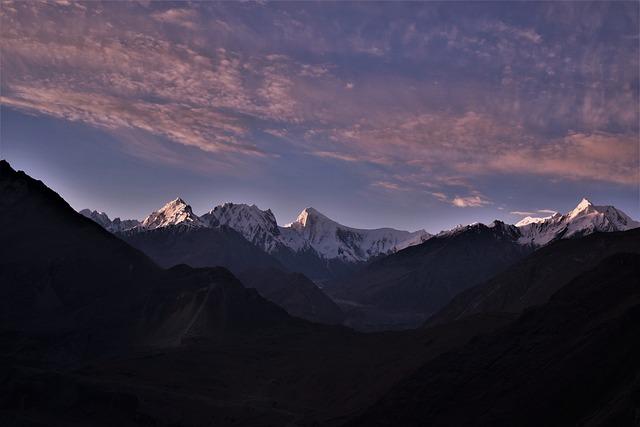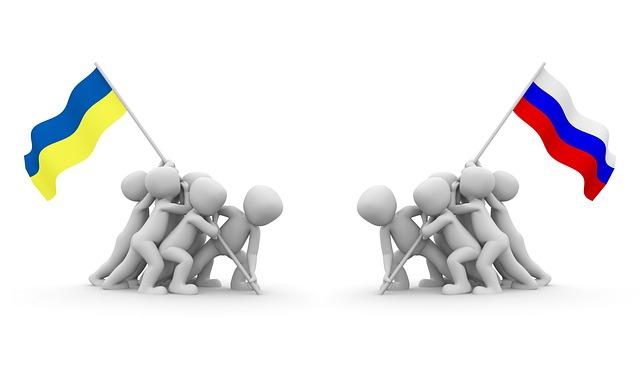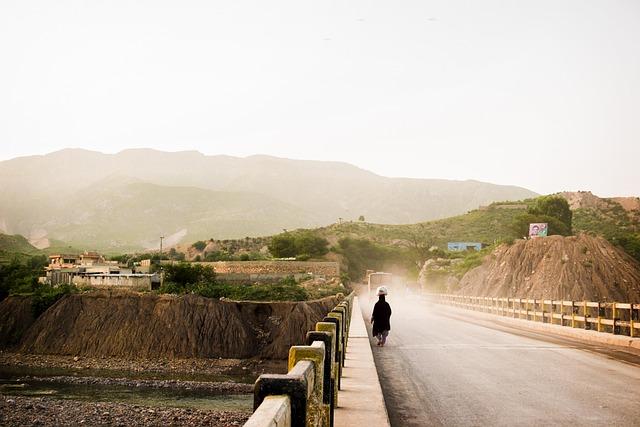In an era where global dynamics shift with unprecedented speed and complexity, the role of nations in shaping the international landscape cannot be understated. At the crossroads of South Asia, Pakistan emerges as a pivotal player, navigating the intricate web of geopolitical interests, economic collaborations, and cultural exchanges that define our world today. With its rich tapestry of history, strategic geographical positioning, and a population that stands at the brink of change, Pakistan’s influence reverberates beyond its borders, impacting regional stability and global discourse. This article seeks to explore the multifaceted role of Pakistan in global affairs, shedding light on the challenges and opportunities it faces in a rapidly evolving international arena. As we delve into the intricacies of its foreign policy, regional partnerships, and the dynamics of its international relations, we aim to unpack the compelling narrative of a nation striving to carve out its identity amidst the complexities of the 21st century.
Understanding Pakistans Strategic Geopolitical Position
Pakistan’s geopolitical landscape is underscored by its vital location at the nexus of South Asia, Central Asia, and the Middle East. This strategic positioning offers a unique vantage point for global powers and regional players alike, making the country a pivotal hub in international logistics and trade. As one of the few nations with direct access to both the Arabian Sea and significant border links to key countries such as India and China, Pakistan serves as a conduit for energy routes and commerce. This has resulted in its engagement in various multinational agreements, shaping its role within a complex web of alliances and partnerships that reflect both historical ties and emerging interests.
Furthermore, the ongoing dynamics of regional security and economic interdependence bolster Pakistan’s significance on the global stage. The country’s involvement in initiatives like the China-Pakistan Economic Corridor (CPEC) highlights its dual role as a collaborator and a beneficiary in the broader context of the Belt and Road Initiative. With persistent challenges such as terrorism, border disputes, and internal political stability, Pakistan’s strategic positioning not only influences its foreign relations but also attracts attention from global powers seeking to assert their influence in the region. This intricate interplay of cooperation and contention places Pakistan at a critical juncture, where its decisions resonate well beyond its own borders.
- Access to Major Trade Routes: Critical for regional and international commerce.
- Energy Corridors: Plays a key role in energy supply chains.
- Geostrategic Partnerships: Engages with both Eastern and Western blocs.
| Strategic Benefit | Description |
|---|---|
| Economic Growth | Increased foreign investment through infrastructural projects. |
| Security Alliances | Partnerships aimed at countering regional threats. |

Economic Diplomacy: Expanding Trade Partnerships in a Competitive Landscape
In an era marked by economic interdependence, Pakistan is strategically positioning itself to leverage trade partnerships that foster mutual growth. By actively engaging in bilateral and multilateral agreements, the country is not only enhancing its trade portfolio but also building resilient ties with critical markets. Some key opportunities for Pakistan include:
- Leveraging Geographic Location: Pakistan can utilize its proximity to major economies, serving as a gateway for trade routes within Asia.
- Diversifying Export Products: Expanding beyond traditional textiles to include technology, agriculture, and pharmaceuticals can give Pakistan a competitive edge.
- Engaging in Regional Cooperation: Strengthening connections with neighboring countries can open avenues for shared economic benefits.
However, expanding trade partnerships is not without its challenges, particularly in a rapidly changing global landscape. Competition for markets and resources has intensified, requiring a nuanced understanding of international trade dynamics. To navigate these complexities, Pakistan must focus on:
- Enhancing Trade Facilitation: Streamlining customs processes and reducing trade barriers can increase competitiveness.
- Investing in Infrastructure: Upgrading ports, road networks, and digital infrastructure is essential for efficient trade flow.
- Strengthening Diplomatic Relations: Cultivating strong diplomatic ties can lead to more favorable trade agreements and partnerships.

Harnessing Soft Power: Culture and Education as Tools for Global Engagement
In the intricate tapestry of global engagement, cultural diplomacy and educational initiatives emerge as potent instruments for fostering relationships and expanding influence. Nations like Pakistan can leverage their rich heritage, arts, and traditions to create a narrative that resonates on the international stage. This proactive approach allows for the celebration of diversity while promoting mutual understanding. By participating in cultural exchanges, showcasing traditional crafts, and hosting art festivals, Pakistan can present a multifaceted image that highlights its contributions to global culture.
Moreover, education serves as a powerful channel for nurturing future leaders and influencers worldwide. By establishing scholarships and exchange programs, Pakistan can cultivate talent and build networks that transcend borders. Initiatives such as:
- International Scholarships: Offering educational opportunities for foreign students in Pakistan.
- Exchange Programs: Facilitating student and faculty exchanges with universities abroad.
- Cultural Workshops: Hosting events that teach Pakistani art, music, and literature to international audiences.
Through these avenues, the nation can enhance its soft power, fostering important ties that promote peace, cooperation, and understanding in an increasingly interconnected world.

Addressing Domestic Challenges to Strengthen International Influence
To enhance its standing in global affairs, Pakistan must first confront and overcome a range of domestic challenges that have historically hindered its international influence. Achieving stability within the country is essential; this includes addressing issues such as political unrest, economic volatility, and social fragmentation. The establishment of a robust governance framework can create a more unified national front, allowing Pakistan to present a cohesive and strategic foreign policy. Some crucial steps to consider in this transformative process include:
- Strengthening institutions: Promoting transparency and accountability.
- Enhancing economic resiliency: Fostering innovation and attracting foreign investment.
- Promoting social cohesion: Building bridges across diverse communities through education and dialogue.
Furthermore, Pakistan’s ability to navigate complex international relationships is heavily contingent on its domestic peace. Amid regional rivalries and shifting global alliances, domestic stability serves as the bedrock for foreign policy decisions. By presenting a united front, Pakistan can leverage its geopolitical position to play a pivotal role in regional connectivity initiatives. This can be achieved by:
- Engaging in multilateral partnerships: Collaborating on regional issues such as security and trade.
- Building economic corridors: Enhancing trade links with neighboring countries to promote mutual growth.
- Advocating for sustainable development: Addressing environmental challenges that can affect not only Pakistan but the entire region.
In Retrospect
In the grand tapestry of global affairs, Pakistan weaves a narrative rich with complexities, opportunities, and challenges. As it navigates the intricate waters of international relations, the nation stands at a crossroads—balancing its historical legacies and modern aspirations. The interplay of regional dynamics, economic partnerships, and geopolitical interests paints a multifaceted picture of a country striving to reaffirm its place on the world stage.
As we draw the curtain on this exploration, it becomes evident that Pakistan’s influence extends far beyond its borders, impacting both its immediate neighbors and global powers. The path ahead is not without hurdles; however, with adaptive strategies and a commitment to dialogue, Pakistan has the potential to transform challenges into avenues for cooperation and growth.
As the world continues to evolve, so too will Pakistan’s role within it. The journey is ongoing, characterized by resilience and hope, inviting both scholars and observers to keep a keen eye on this pivotal player in the international arena. In navigating the complexities of global affairs, one thing remains clear: Pakistan’s story is a significant chapter in the broader narrative of our interconnected world.



